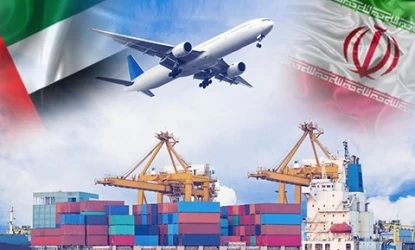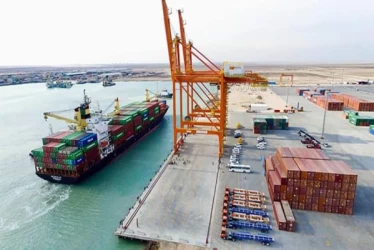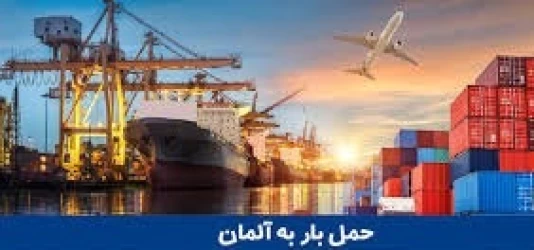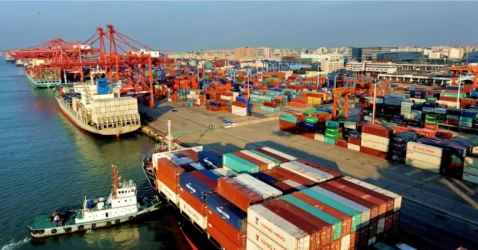guide to trade with Azerbaijan, sea transportation
Azerbaijan, located in the South Caucasus, is a country with a strategic geographic and economic position. It serves as a gateway to Central Asia and Eastern Europe. Known for its rich natural resources, particularly oil and gas, Azerbaijan is rapidly diversifying its economy by expanding sectors such as agriculture, IT, tourism, and transportation. For businesses looking to expand their trade operations with Azerbaijan, understanding the country’s trade regulations and maritime transport infrastructure is crucial. This article provides a comprehensive guide to doing business with Azerbaijan, with a special focus on maritime transport.
1. Overview of Azerbaijan’s Economy
Azerbaijan's economy is heavily dependent on oil and gas exports. However, in recent years, the government has made significant efforts to develop non-oil sectors. Major infrastructure projects and government investments have made the country a more attractive destination for foreign investors.
Key Industries
- Oil and Gas: Azerbaijan’s hydrocarbon resources are the cornerstone of its economy. Major pipelines transport oil and gas to Europe and other markets, making it a key energy player.
- Agriculture: Agriculture is one of the most important sectors in Azerbaijan’s non-oil economy. Key agricultural products include cotton, grapes, wheat, and dried fruits.
- Tourism and IT: As part of its efforts to diversify the economy, Azerbaijan is also investing in IT infrastructure and tourism.
Economic Growth
Despite global fluctuations in oil prices, Azerbaijan has maintained stable economic growth over the last few decades. The country’s focus on infrastructure development and economic diversification has positioned it well for future growth.
2. Trade Regulations in Azerbaijan
Understanding Azerbaijan’s trade laws and regulations is essential for successful business operations. Azerbaijan offers a relatively simple trade system with opportunities for foreign traders and investors due to its strategic location and efforts to ease the business environment.
Import and Export Licensing
Businesses looking to import or export goods to and from Azerbaijan need to obtain the necessary licenses from the relevant authorities. The Ministry of Economy is a key body overseeing trade regulations and providing guidance on obtaining licenses and permits.
Tariffs and Taxes
- Value-Added Tax (VAT): Imports to Azerbaijan are subject to VAT, typically at a rate of 18%.
- Customs Duties: Customs duties vary depending on the type of goods being imported. Luxury consumer goods and certain industrial products often have higher tariffs.
Standards and Compliance
Goods imported into Azerbaijan must meet specific quality and safety standards. This is particularly important for food and pharmaceutical products, which are subject to stringent regulations. Failure to comply with these standards can result in delays at customs or even the return of goods.
3. Maritime Transport in Azerbaijan
As a landlocked country, Azerbaijan relies heavily on the Caspian Sea for its maritime transport. The Caspian Sea serves as a critical route for trade with neighboring countries and other global markets. Maritime transport in Azerbaijan plays a key role in moving both oil and non-oil goods.
Major Ports in Azerbaijan
- Baku International Sea Trade Port: The most important and largest port in Azerbaijan is the Baku International Sea Trade Port. This port serves as the central hub for Azerbaijan’s maritime transport and handles a wide variety of cargo types, including oil, gas, and non-oil products.
- Alat Port: Located near Baku, Alat Port specializes in handling heavy and bulk cargo. It is a major point of entry and exit for energy resources such as oil and petroleum products.
Shipping Companies Operating in Azerbaijan
Several international shipping companies operate in Azerbaijan, providing cargo transportation services to and from the country. Some of the prominent shipping lines include:
- Caspian Shipping Company
- Maersk Line
- MSC (Mediterranean Shipping Company)
Maritime Transport Process
The process of maritime transport to Azerbaijan through the Caspian Sea involves several key stages:
- Preparation and Documentation: The first step involves preparing the necessary documents such as commercial invoices, bill of lading, packing lists, and certificates of origin. These documents are essential for customs clearance.
- Shipping and Transit: Once the cargo is loaded onto ships, it is transported to Azerbaijani ports. The duration of transport depends on the origin of the shipment. For instance, goods from Russian ports typically take 5 to 10 days to reach Baku.
- Customs Clearance: After arriving at an Azerbaijani port, goods go through customs clearance. Working with local experts to navigate the customs process can help expedite this stage.
- Domestic Transportation: Once customs procedures are completed, the goods are transported to their final destination within Azerbaijan by road or rail.
Maritime Transport Costs
Shipping costs to Azerbaijan vary based on factors such as the weight and volume of the shipment, type of cargo, and route. Container shipping is usually more cost-effective for large volumes of goods, while smaller shipments can incur higher per-unit costs.
4. Benefits of Trading with Azerbaijan
There are several benefits to trading with Azerbaijan, which make it an attractive market for international businesses:
- Access to Regional Markets: Azerbaijan serves as a gateway to the Caucasus, Central Asia, and beyond, offering access to a broader regional market.
- Stable Economic Growth: Despite global oil market fluctuations, Azerbaijan’s economy continues to grow steadily, with government investments in infrastructure boosting trade opportunities.
- Improved Transport Infrastructure: Ongoing government efforts to improve the country’s transport infrastructure, including ports, roads, and railways, make it easier to conduct trade.
5. Challenges of Trading with Azerbaijan
Despite the many opportunities, there are also challenges associated with trading in Azerbaijan:
- Bureaucracy: Trade processes in Azerbaijan can sometimes be complex and time-consuming due to bureaucratic hurdles. Working with local legal and logistics experts can help mitigate these challenges.
- Economic Volatility: Azerbaijan’s heavy reliance on oil revenues makes its economy vulnerable to fluctuations in global oil prices. Businesses should consider diversifying their investments across non-oil sectors to minimize risk.
- Compliance with Standards: Ensuring that goods meet Azerbaijan’s stringent import standards, particularly for food and pharmaceuticals, is essential to avoid delays or rejected shipments.
Conclusion
Azerbaijan offers substantial opportunities for businesses looking to expand into the region. Its strategic location, natural resources, and growing infrastructure make it an attractive destination for international trade. By understanding Azerbaijan’s trade regulations, leveraging its maritime transport system, and working with local partners, businesses can successfully tap into this dynamic market. Ensuring compliance with standards and navigating the challenges associated with trade can lead to long-term success in Azerbaijan.
If you have any specific questions or need further assistance, feel free to ask!











